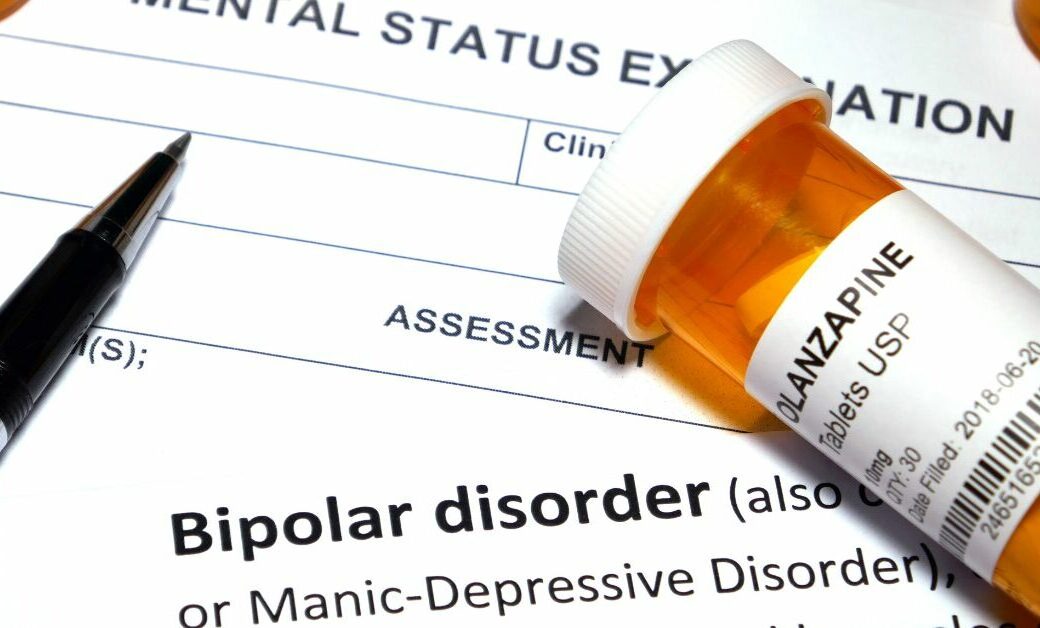Introduction
Bipolar medication is often a key component of treatment for bipolar disorder, but it requires close monitoring for a number of reasons.
Bipolar disorder is a serious mental health condition characterised by extreme mood swings and fluctuations in energy and activity levels. It is a chronic condition that can have significant impacts on an individual’s daily functioning and quality of life.
The most commonly used medications for bipolar disorder are mood stabilisers such as lithium, valproic acid and lamotrigine. Antipsychotic medications and antidepressants may also be used in conjunction with mood stabilisers to manage symptoms.
However, in this blog we will focus on the three most commonly-prescribed mood stabilisers mentioned above. Read on to find out how they work and why the monitoring of these medications by a qualified health professional is so important.
Why should bipolar medication be monitored?
It is important that bipolar medication is monitored closely by a medical professional, particularly a psychiatrist, as the dosage and effectiveness of these medications can vary greatly from person to person. Changes in medication may be necessary based on factors such as the individual’s age, weight, other medical conditions and potential drug interactions.
Mood stabilisers, in particular, can have significant side effects if not properly monitored. For example, lithium can cause tremors, nausea, and weight gain, while valproic acid can cause liver damage and pancreatitis. Regular blood tests are often required to monitor for these side effects and ensure that the individual is receiving the appropriate dosage.
Follow-up appointments with a psychiatrist are typically necessary every few months to assess the individual’s symptoms and medication effectiveness. It is important for the individual to be honest with their doctor about their symptoms and any side effects they may be experiencing.
The success rate of specific medications in treating different types of bipolar disorder can vary. Some individuals may find relief from their symptoms with one particular medication, while others may require a combination of medications or a different medication altogether. It is important for the individual to work closely with their doctor to find the most effective treatment plan for their specific needs.

In-depth look at mood stabilisers
Let’s take an in-depth look at the three most common mood stabilisers used to treat bipolar. We’ll explain how they work, why they should be monitored and how they should be monitored.
Lithium
Lithium is a mood stabilising medication that is commonly used to treat bipolar disorder. It works by inhibiting the reuptake of certain neurotransmitters in the brain, including serotonin and norepinephrine, which can help to regulate mood and prevent extreme swings in mood and energy.
Lithium is incredibly effective in treating bipolar disorder and can significantly improve an individual’s quality of life. However, like all medications, it is important that it is monitored closely to ensure its effectiveness and safety.
Lithium levels in the body need to be monitored regularly through blood tests. This is because the correct dosage of lithium can vary greatly from person to person, and if the levels of lithium in the body are too high or too low, it can be harmful. High levels of lithium can cause tremors, nausea, and kidney damage, while low levels can be ineffective in managing symptoms.
Blood tests to monitor lithium levels are typically performed every few months, although the frequency may vary based on the individual’s specific needs and any potential side effects. It is important for the individual to follow their treatment plan and attend all scheduled follow-up appointments with their doctor to ensure that their lithium levels are being properly monitored.
Valproic Acid
Valproic acid is a mood stabilising medication that is commonly used to treat bipolar disorder. It works by inhibiting the breakdown of certain neurotransmitters in the brain, including GABA, which can help to regulate mood and prevent extreme swings in mood and energy.
Valproic acid is incredibly effective in treating bipolar disorder and can significantly improve an individual’s quality of life. However, like all medications, it is important that it is monitored closely to ensure its effectiveness and safety.
Valproic acid can cause a number of side effects, including liver damage and pancreatitis, and regular blood tests are necessary to monitor for these potential complications. Liver function tests and pancreatic enzyme levels should be checked regularly, typically every few months, although the frequency may vary based on the individual’s specific needs and any potential side effects.
Regular check-up consultations are also important so that your psychiatrist can assess whether the dosage of this medication is appropriately managing your symptoms or if it needs to be adjusted accordingly.
Lamotrigine
Lamotrigine is a mood stabilising medication that is commonly used to treat bipolar disorder. It works by inhibiting the release of certain neurotransmitters in the brain, including glutamate, which can help to regulate mood and prevent extreme swings in mood and energy.
Lamotrigine is incredibly effective in treating bipolar disorder and can significantly improve an individual’s quality of life. However, like all medications, it is important that it is monitored closely to ensure its effectiveness and safety.
Lamotrigine levels in the body do not typically need to be monitored through blood tests. However, it is important for the individual to follow their treatment plan and attend all scheduled follow-up appointments with their doctor to assess the effectiveness of the medication and any potential side effects.
It is also important to note that lamotrigine can interact with other medications and may affect the metabolism of certain drugs. It is essential for the individual to inform their doctor of any other medications they are taking, including over-the-counter drugs and supplements, to ensure that there are no potential interactions.
Conclusion
It is important to note that the information provided about the need for monitoring these medications is not intended to scare patients, but rather to educate them about the importance of proper medication management in the treatment of bipolar disorder. With proper monitoring and adherence to a treatment plan, individuals with bipolar disorder can experience significant improvements in their symptoms and overall quality of life.
In conclusion, medication is an important aspect of treatment for bipolar disorder and requires close monitoring by a medical professional to ensure its effectiveness and safety. It is essential for individuals with bipolar disorder to follow their treatment plan and stay in regular communication with their doctor to manage their symptoms and improve their overall quality of life.

